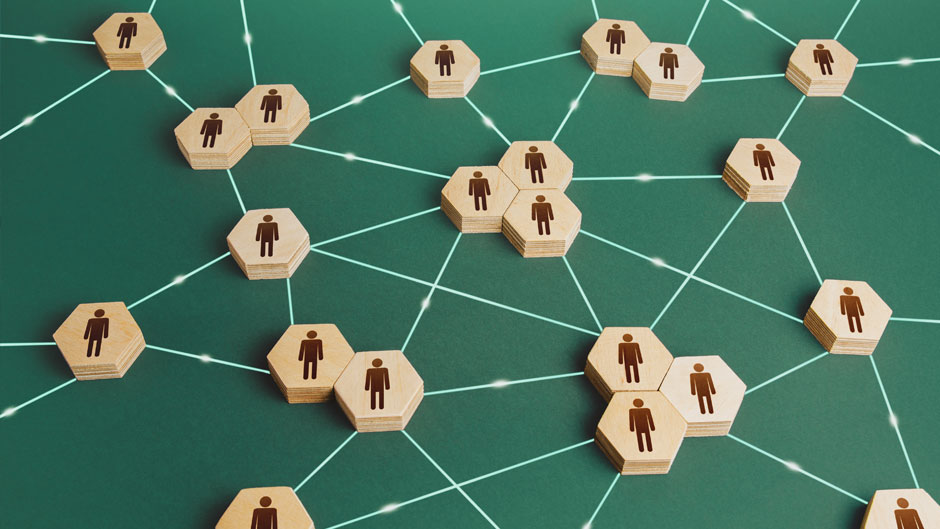DAOs—Decentralized Autonomous Organizations—are shaking up the business world. Built on blockchain infrastructure, these transparent, code-based collectives are taking control from corporate boards and giving it to global communities. With billion-dollar treasuries and no CEOs, DAOs are more than a trend—they may be the future of business governance.
What Is a DAO?
A Decentralized Autonomous Organization (DAO) is a new kind of organization built on blockchain technology. Instead of being governed by a central authority or CEO, DAOs are managed by code—smart contracts that execute actions automatically—and decisions are made collectively by token-holding members.
These members vote on everything from investment strategies to hiring decisions, turning traditional corporate hierarchy on its head.
DAOs represent a radical transparency: every vote, transaction, and rule is recorded immutably on-chain for the world to see.
The Rise of a New Business Model
While the concept first emerged with Ethereum in 2016, DAOs have recently exploded. As of early 2025, there are over 16,000 DAOs managing more than $40 billion in assets. These span sectors from venture capital and gaming to philanthropy, research, and real estate.
Some standout examples include:
Uniswap DAO: Governs one of the largest decentralized exchanges, managing over $2B in liquidity.
Gitcoin DAO: Funds open-source software developers globally.
PleasrDAO: Purchases and curates culturally significant digital art and media.
Each DAO operates independently, but all are powered by collective decision-making, global participation, and transparent rules.
Why Are DAOs Disrupting Traditional Business?
DAOs aren’t just blockchain buzz—they’re fixing some of the core issues in modern corporate governance:
Lack of Trust in Leadership: DAOs reduce reliance on human executives and opaque decisions.
Global Accessibility: Anyone with an internet connection and tokens can participate.
Incentive Alignment: Token holders are stakeholders, incentivized to improve the organization.
Rapid Innovation: Without bureaucracy, DAOs can experiment quickly and pivot in real time.
Unlike traditional firms, DAOs also operate 24/7 and are natively digital, adapting more smoothly to today’s decentralized work culture.
Challenges Facing DAOs
Still, the DAO revolution isn’t without friction. These organizations face complex issues:
Legal Recognition: Many jurisdictions don’t know how to classify DAOs—are they companies? Cooperatives? Communities?
Security Risks: Code-based governance means bugs or exploits can lead to massive losses, as in the infamous 2016 DAO hack.
Voter Apathy and Plutocracy: In some DAOs, a few whales control decisions. Others suffer from low voter turnout.
Scalability: Managing thousands of proposals or contributors without chaos remains a challenge.
Innovators are working on hybrid models, delegation systems, and more intelligent governance tools to overcome these.
DAOs and the Future of Work
DAOs are also transforming how people earn a living. Instead of a 9-to-5 job, contributors can earn tokens by:
Writing documentation
Building software
Designing graphics
Running community support
This “work-to-earn” model incentivizes output and participation rather than static roles or resumes. It’s a meritocratic shift that benefits freelancers, creatives, and global talent.
Platforms like Coordinape and Wonderland already help DAOs distribute compensation based on peer recognition and results.
Big Players Are Taking Note
Major companies and investors are no longer ignoring DAOs. In 2024:
Andreessen Horowitz launched a $600 million fund for DAO tooling.
Stripe began integrating payments for DAO contributors.
The United Nations explored using DAOs for transparent aid distribution.
Even governments are testing DAOs for managing public goods and citizen participation.
Are DAOs the End of Corporations?
Not quite—yet.
Traditional corporations still dominate in terms of legal clarity, scalability, and mainstream adoption. But DAOs are no longer a fringe concept. They offer a compelling vision for a future where communities build and govern together—efficiently, transparently, and globally.
Just as LLCs reshaped business in the 20th century, DAOs may define the 21st.
Conclusion
DAOs aren’t just an experiment in code—they’re a global social shift. They blend finance, democracy, and community into a living, evolving organization without borders. As the infrastructure matures and trust in centralized systems wanes, DAOs may become not just a part of the future economy—but the foundation of it.
Source: Ethereum Foundation (2025), DeepDAO Analytics, Harvard Business Review: “The DAO of Business,” a16z Crypto Reports on DAO Infrastructure.

